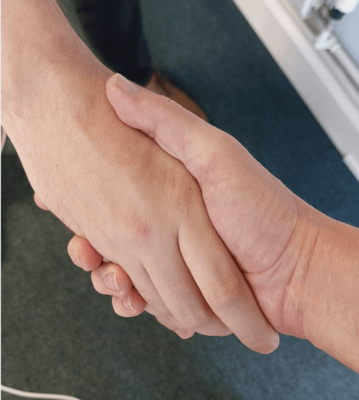The more I read and study the story of the Good Samaritan the more I realise that throughout our life journey each of us, at any given time, has the potential to be all of the characters present in this simple narrative.
Most of us are familiar with the ancient question: Who is my neighbour? The backdrop to this question can be found in Luke Chapter 10. An expert in the law asked Jesus: who is my neighbour? He responds with a story about a man who was beaten up, his possessions were stolen and he was left on the side of the road to die.
Interestingly, we read of two religious men who saw the wounded man, ignored him and crossed the road. Scholars offer all sorts of reasons as to why the religious men did not stop to help. But the bottom line is they crossed the road. Along came a Samaritan. It is important to mention that the Jews and the Samaritans were enemies.
The Good Samaritan, 1885 #realism #swissart pic.twitter.com/tk4uaDG4Im
— Ferdinand Hodler (@artisthodler) July 5, 2021
The Samaritan was from the ‘other’ community. Someone from the ‘other’ religious background. If anyone had a reason to keep walking, it was this guy. Instead the Samaritan stopped. He knelt down into the dirt and dust to help the man who was wounded. Perhaps what he saw that day was a reflection of himself and his own humanity; realising that the wounded man is one of us.
Often as we read this story we home in on the champion of the day – the Good Samaritan. But what if we go a little deeper? What if we are being challenged to deal with the same attitudes deep within us that were displayed by the religious men who ignored the wounded man and crossed the road? The truth is: whether we have faith or not, we are all guilty of crossing the road. We are all guilty of ignoring the wounds of our neighbour.
Monday Moment: As leaders and teachers, how do we create opportunities to not just learn about the Good Samaritan, but to welcome them into our world? How can we break down stereotypes of class, gender, race, religion and age in our schools? pic.twitter.com/kNGVObRPt1
— Hereford Diocese Schools (@HDioceseSchools) June 28, 2021
This past weekend I received several messages telling me I was a traitor to the Protestant people. Why? Because I have joined Ireland’s Future and have often Tweeted support for the Irish Language. I guess the words of John Lederach ring true:
"You have never really engaged in the work of reconciliation until your own people feel like you have betrayed them."
Last weekend, I tweeted in response to a comment made by the DUP Leader, Jeffrey Donaldson. I (publicly) invited Jeffrey Donaldson for a coffee, and I’m thankful and humbled that he accepted my offer.
Jeffrey, my mum died a year ago today. I respect that this probably means nothing to you. I don’t have the energy tonight.. the Irish language is beautiful and belongs to us all.
— Rev Karen Sethuraman (@KarenSethuraman) June 26, 2021
I’m happy to have coffee with you. Time to stop. Our people deserve better. Blessings to you Rev K https://t.co/rPj1Wpwv1F
Loving our neighbour… calls us to show compassion and grace especially to those who have hurt us deeply.
Loving our neighbour... calls us to run to the wounded.
Loving our neighbour… calls us to not return insult for insult.
Loving our neighbour… calls us to hear other perspectives (even when we painfully disagree).
Loving our neighbour… calls us to stop crossing the road.
The more I read over this story, the more I am convinced that to love our neighbour is costly and risky. Isn’t it interesting that Jesus calls the Samaritan ‘Good’? Let’s remember that the Jews and Samaritans were enemies. I believe Jesus is tenderly reminding his listeners that in the heart of whoever we believe our enemy to be – there is goodness.
This ancient story of: who is my neighbour never gets old!






